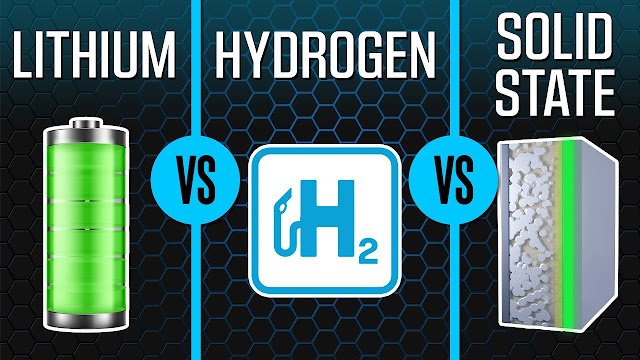on video Lithium VS Hydrogen VS Solid State | EV Battery Technologies Explained
While most consumers are driving and continue to drive gas vehicles, there are some companies, including GM, that would hurry the transition to electric cars. However, there are some issues with the adoption of electric vehicles.
Currently, electric vehicles have a limited range of only three to four hundred miles, and they take much longer to charge than it would otherwise take to fill your car tank with gasoline. Once ranges can be extended and charging time significantly sped up, they will be considered more practical. The important question is, how far away are we from fixing these issues?
In this blog, we’ll be looking at different battery technologies currently in development, how close they are to being implemented, and the potential challenges each has that must be overcome.
We explain the main types of electric vehicle battery technologies, and the pros and cons of each. Lithium, Hydrogen, & Solid State
While most consumers are driving and continue to drive gas vehicles, there are some companies, including GM, that would hurry the transition to electric cars. However, there are some issues with the adoption of electric vehicles.
Currently, electric vehicles have a limited range of only three to four hundred miles, and they take much longer to charge than it would otherwise take to fill your car tank with gasoline. Once ranges can be extended and charging time significantly sped up, they will be considered more practical. The important question is, how far away are we from fixing these issues?
In this blog, we’ll be looking at different battery technologies currently in development, how close they are to being implemented, and the potential challenges each has that must be overcome.
We explain the main types of electric vehicle battery technologies, and the pros and cons of each. Lithium, Hydrogen, & Solid State








No comments